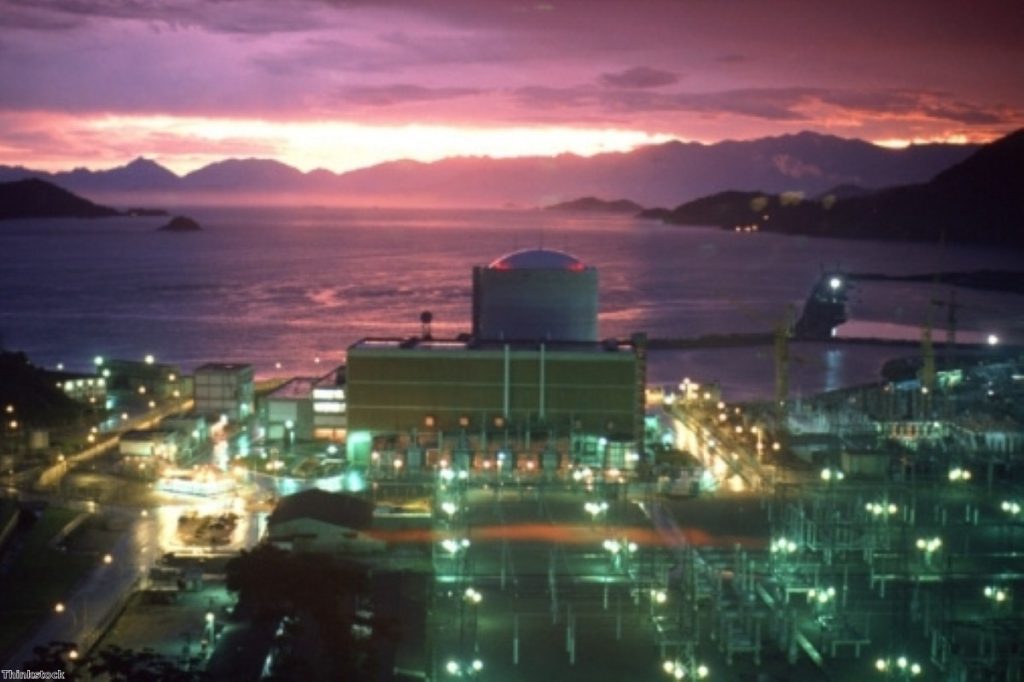Electricity giant cashes in on Osborne’s ‘bonkers’ nuclear deal
A French-owned electricity giant is to receive millions of pounds in public subsidy, in a controversial nuclear power station deal which will guarantee it doubles the current wholesale price for electricity.
EDF has agreed to build a new nuclear plant at Hinkley Point in Somerset in return for a guaranteed £92.50 per megawatt hour of electricity for the first 35 years of its operation.
The construction of the plant will also be heavily subsidised by the British government.
The decision marks a major U-turn for the Liberal Democrats, who previously promised that new nuclear power stations would receive no public subsidy.


Just last year, Lib Dem energy secretary Ed Davey insisted new nuclear plants would only go ahead if they were privately financed.
But today he applauded the decision to subsidise the new plant, saying it was necessary to "keep the lights on".
"We've got to make these investments because two-thirds, nearly two-thirds of our electricity-generating capacity is going offline over the next 15 years so we’ve got to replace it," he told the BBC.
"So if people at home want to be able to keep watching the television, be able to turn the kettle on and benefit from electricity, we’ve got to make these investments. It’s essential to keep the lights on and to power British business."
Green campaigners today attacked the deal as "disastrous" and pledged to fight it all the way. Green Party MP Caroline Lucas also called on the national audit office to investigate.
“Overseas investors will make massive profits from this deal, funded by British billpayers," Lucas said.
"It will further increase the distance between those who profit from nuclear and those who pay for it. Instead of locking Britain into this costly and risky technology, the Government should be investing seriously in energy efficiency and renewables, the costs of which are rapidly decreasing," she added.
One high-profile campaigner who supports nuclear power in principle, said the current deal was "bonkers".
"Yes, I support nuclear power, in general. But the economics of the Hinkley deal are simply bonkers. Appalling value for money," leading environmental activist George Monbiot said.
The deal means that bill payers face at least 35 years of levies to pay for the new plant at Hinkley Point.
The wholesale price will be linked to inflation but could fall if EDF and their two Chinese partners agree to construct another nuclear plant at Sizewell in Suffolk.
Labour today accused the government of hypocrisy for backing a fixed price for electricity generators while opposing one for consumers.
"David Cameron is now in the ridiculous position of saying that they can set prices 35 years ahead for the companies producing nuclear power, while insisting they can't freeze prices for 20 months for consumers while much-needed reforms are put in place," shadow energy secretary Caroline Flint said today.
The row over nuclear comes as the big six energy companies get ready to announce further price rises.
British Gas and SSE have already announced rises of up to nine per cent. Other major suppliers are expected to follow suit later this week.
The Archbishop of Canterbury said yesterday that energy companies had "a moral obligation" to consider the effect of their price rises on the poor.
"The impact on people, particularly on low incomes, is going to be really severe in this, and the companies have to justify fully what they are doing," Justin Welby told the Mail on Sunday.
"I do understand when people feel that this is inexplicable, and I can understand people being angry about it, because having spent years on a low income as a clergyman I know what it is like when your household budget is blown apart by a significant extra fuel bill and your anxiety levels become very high. That is the reality of it," he added.

